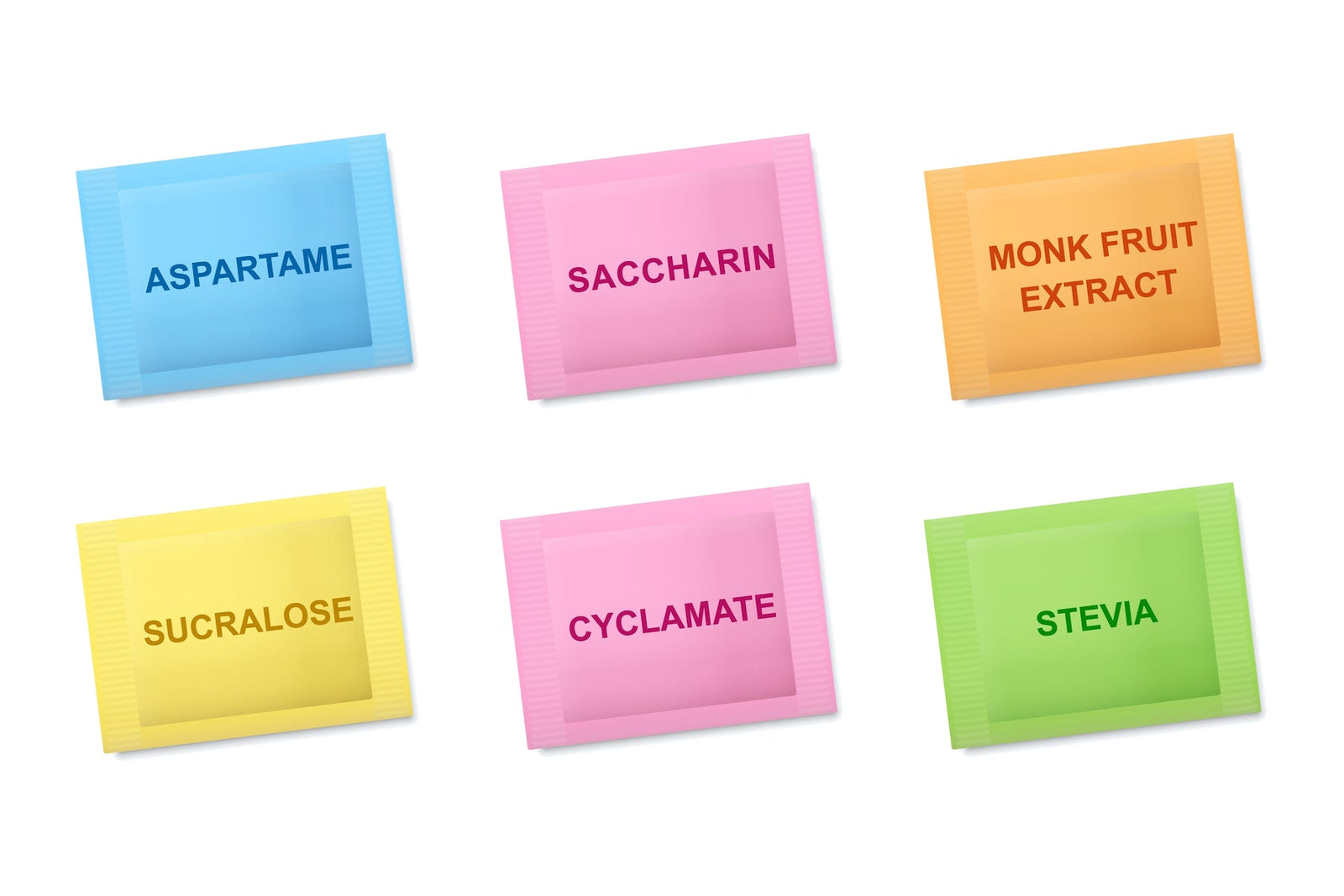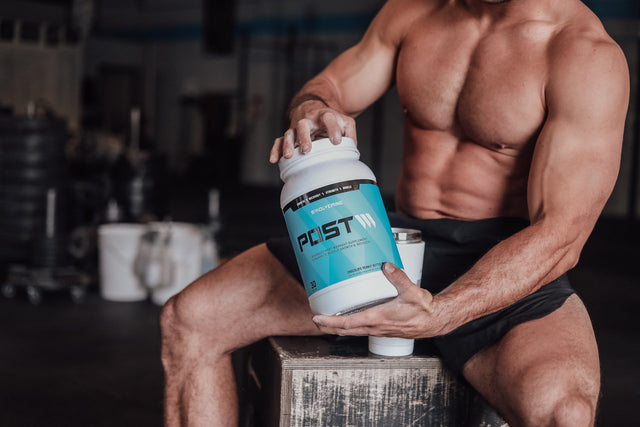Misinformation spreads like wildfire. And in today’s hyper-connected digital landscape, few things ignite faster than a headline about food safety. The latest spark? Sucralose—a widely used, zero-calorie sweetener better known by its brand name, Splenda.
A recent study out of the University of North Carolina at Chapel Hill suggested that sucralose-6-acetate (S6A), a byproduct of sucralose production, might be genotoxic, meaning it could damage DNA. Naturally, this sparked controversy.
But does this research actually show that sucralose is harmful? Let’s break down the science, investigate the facts, and understand what decades of peer-reviewed research really say.
What Is Sucralose?
Sucralose is a non-nutritive sweetener approved by the FDA in 1998 and used in over 80 countries. Unlike some sugar substitutes, sucralose is derived from real sugar by replacing three hydroxyl groups with chlorine atoms. This chemical modification makes it:
-
~600 times sweeter than sugar
-
Non-caloric
-
Not metabolized by the body
Because it’s heat-stable, has no bitter aftertaste, and doesn’t spike blood sugar, sucralose is commonly found in:
-
Protein powders
-
Yogurts
-
Baked goods
-
Beverages
-
Supplements
“Sucralose is not broken down for energy and does not contribute to caloric intake.” — FDA
Is Sucralose Safe?
Yes. Over 100 peer-reviewed studies have evaluated sucralose for potential risks, including cancer, reproductive harm, and neurological effects—and found it to be safe for human consumption.
“Sucralose has been evaluated in multiple long-term studies and determined to be safe for use by the general population, including children and pregnant women.” — EFSA
It’s also considered helpful in reducing sugar intake, particularly for those managing diabetes or obesity.
“When used to reduce added sugars, non-nutritive sweeteners like sucralose can aid in weight management and glycemic control.” — Gardner et al., Circulation
Is Sucralose Genotoxic?
The UNC study raised concerns about sucralose-6-acetate (S6A), a chemical byproduct that can occur during sucralose manufacturing. It suggested that S6A may damage DNA—but here's the important distinction:
-
The researchers studied S6A, not sucralose.
-
S6A is removed during the manufacturing process and is not present in the final product used in foods and supplements.
-
The study was conducted in vitro, meaning in a lab dish—not in a living organism.
“There is no evidence that S6A is present in consumer products or that sucralose converts into S6A in the body.” — Calorie Control Council
Understanding In Vitro vs. In Vivo Studies
The UNC study was in vitro, which means it was done in a test tube or petri dish—outside a living organism.
-
In vitro studies are valuable for understanding isolated cellular reactions.
-
But they cannot replicate the full complexity of digestion, metabolism, or excretion that occurs in the human body.
“In vitro models are limited in their ability to predict in vivo toxicity due to lack of metabolic and immune system interactions.” — EFSA, Toxicological Research
In contrast, in vivo studies and human clinical trials of sucralose have shown no genotoxicity and no cancer risk.
Sucralose and the Gut Microbiome
Concerns about gut health and sucralose stem from a 2008 rat study, which suggested sucralose may alter gut bacteria and increase enzyme activity that affects nutrient absorption.
However, a year later, an independent expert panel reviewed that study and found major flaws:
“The conclusions drawn from the 2008 study are not consistent with the broader body of scientific literature and are not supported by the data.” — Renwick et al., Regulatory Toxicology and Pharmacology
To date, no well-conducted human studies have shown that sucralose negatively affects gut health in realistic dietary doses.
Sucralose vs. Other Sweeteners
| Sweetener | Type | Calories | Sweetness vs Sugar | Blood Sugar Impact | Typical Use Cases |
|---|---|---|---|---|---|
| Sucralose | Artificial (from sugar) | 0 | 600x | No | Supplements, baking, beverages |
| Aspartame | Artificial | 4/g | 200x | Minimal | Diet soda, gum |
| Stevia | Natural (plant-based) | 0 | 200–300x | No | Beverages, health products |
| Monk Fruit | Natural (fruit-based) | 0 | 150–200x | No | Keto snacks, health bars |
| Sugar | Natural | 4/g | 1x | Yes | Processed foods, baking |
Frequently Asked Questions About Sucralose
Q: Does sucralose cause cancer?
No. Multiple human and animal studies have shown no link between sucralose and cancer. — National Cancer Institute
Q: Does sucralose spike blood sugar or insulin?
No. Sucralose does not impact blood glucose or insulin levels, making it safe for diabetics. — FDA
Q: Is sucralose bad for gut health?
Current human data does not support claims of gut microbiome disruption. Previous rat studies were later found to be methodologically flawed. — Renwick et al., Regulatory Toxicology and Pharmacology
Q: Is sucralose the same as sucralose-6-acetate (S6A)?
No. S6A is a manufacturing byproduct, not the sweetener itself. It is removed during purification and not found in consumer-ready products. — Calorie Control Council
Conclusion: Is Sucralose Safe?
Yes. Sucralose is one of the most extensively studied and widely approved food additives in the world. The recent S6A headlines are based on isolated, test-tube research that does not reflect how sucralose behaves in the human body.
Here’s what we know:
-
Sucralose is not genotoxic
-
Sucralose does not cause cancer
-
Sucralose has no consistent adverse effects on gut health
-
Sucralose is safe when used within acceptable daily intake levels
“Sucralose has undergone one of the most extensive safety evaluations of any food additive and is approved by over 100 regulatory authorities worldwide.” — EFSA & FDA Joint Safety Review
Used appropriately, sucralose remains a safe and effective option to help reduce sugar intake, manage blood sugar, and support healthier dietary choices in the modern food environment.













